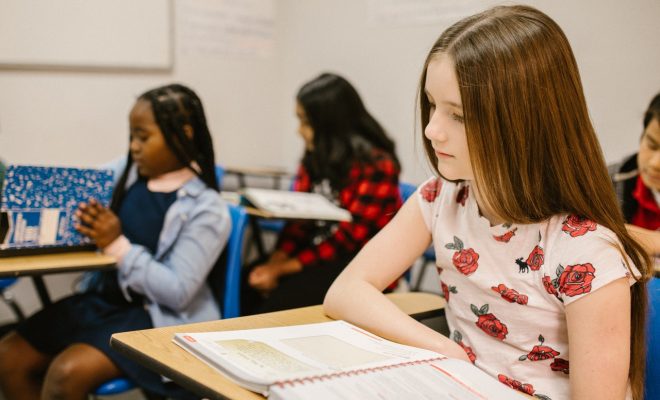What is Culturally Responsive Pedagogy?

The growing popularity of culturally responsive instruction is slowly causing traditional trends to be reversed, with the onus to adapt to the demands of the multicultural classroom being increasingly placed on the teacher. Given the wealth of diversity in our nation’s public schools, it is no wonder that instructional theory is advocating a shift toward a pedagogy that emphasizes a comfortable and academically enriching environment for students of all ethnicities, races, beliefs, and creeds.
Culturally responsive pedagogy is a student-centered approach to teaching in which the students’ unique cultural strengths are identified and nurtured to promote student achievement and a sense of well-being about the student’s cultural place in the world. Culturally responsive pedagogy is divided into three functional dimensions: the institutional dimension, the personal dimension, and the instructional dimension.
The institutional dimension of culturally responsive pedagogy emphasizes the need for reform of the cultural factors affecting the organization of schools, school policies and procedures (including allocation of funds and resources), and community involvement. The personal dimension refers to the process by which teachers learn to become culturally responsive. The instructional dimension refers to practices and challenges associated with implementing cultural responsiveness in the classroom.
Given that a majority of teachers hail from a middle class European-American background, the biggest obstacle to successful culturally responsive instruction for most educators is disposing of their own cultural biases and learning about the backgrounds of the students that they will be teaching. The processes necessary for preparing to teach in a culturally responsive classroom can be broken down into three general categories: exploring one’s own culture, learning about other cultures, and learning about students’ cultures.
Before seeking out knowledge about the cultures of the diverse students that they will be teaching, educators must first investigate their own heritage, upbringing, and potential cultural and racial biases. A common side effect of being raised in the dominant European-American culture is the self-perception that “I’m an American; I don’t have a culture.”
Of course this is view is thoroughly inaccurate; European-American culture simply dominates social and behavioral norms and policies to such an extent that those who grow up immersed in it can be entirely unaware of the realities of other cultures. A related misconception that many teachers labor under is that they act in a race-blind fashion; however, most teachers greatly overestimate their knowledge about other cultures, which manifests itself in a lack of cultural sensitivity in classroom management and pedagogical techniques.
Fortunately, initial cultural biases can be overcome via hard work and reflection. The necessary element for discarding pre-existing biases is a willingness to go through a process of rigorous self-appraisal in order to learn what needs to be changed to teach in a culturally responsive fashion. A good way to start this process is by writing down reflections about family history, upbringing, and interpersonal relationship styles and how one’s experience may differ from the experience of a person raised in a different culture.
Eventually the focus of this reflection must turn toward one’s ideas about and racism and bias. The culturally responsive educator should reflect on the fears, stereotypes, and biases that they have about individuals that are different from them. Once the educator can recognize that their own personal tastes are not objectively better than those favored by other cultures, they can begin to investigate and appreciate the traditions and values of those cultures.
References
Culturally responsive teaching is a theory of instruction that was developed by Dr. Gloria Ladson-Billings and has been written about by many other scholars since then. To read more of her work on culturally responsive teaching and other topics, click here to visit her Amazon.com page.






